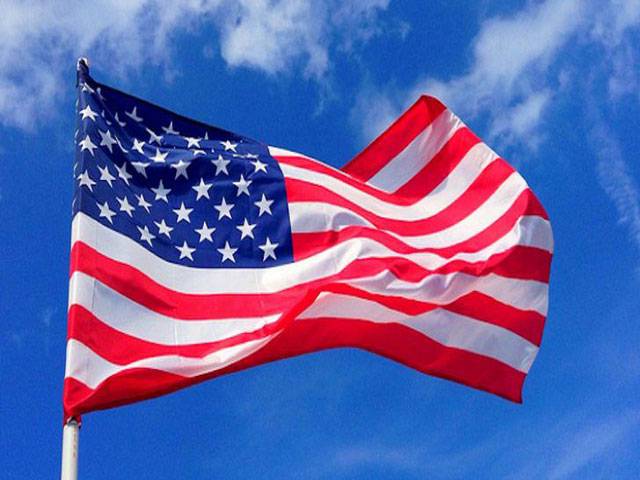ISLAMABAD - The United States has asked Pakistan to avoid getting “too close” to Iran as Washington and Islamabad struggle to build the confidence level, The Nation has learnt.
Senior officials at the foreign ministry told The Nation that Washington was not happy with the growing ties between Pakistan and Iran and had asked Islamabad to “stay within limits”.
“The recent positive contacts between Pakistan and Iran have not been welcomed by the US. They believe we [Pakistan] should stay away from Iran as much as possible. They have conveyed their message in this regard too,” said an official, who remains in contact with Washington.
He added: “The US has made it clear it cannot support Pakistan to have close ties with Iran when Tehran was defiant not to cooperate with Washington.”
This month army chief Qamar Javed Bajwa visited Iran and had positive meetings with the civil and military leaders.
During Bajwa’s visit, the two sides heaped praise on each other despite differences on regional issues – mainly Afghanistan.
General Bajwa met President Hassan Rouhani, Foreign Minister Javad Zarif and the Chief of Staff of Iran’s armed forces Major General Mohammad Hossein Bagheri.
Days before the army chief’s visit, Pakistan and Iran had agreed to work together for peace in Afghanistan and the regional stability.
The two countries had held informal consultations on regional situation including Afghanistan.
The agreement on cooperation between Pakistan and Iran comes after the US pressed Pakistan to accept President Donald Trump’s new Afghanistan policy – with a greater role for India.
US Secretary of State Rex Tillerson, who visited Pakistan last month, had made it clear to Pakistan’s civil and military leadership that his country would not change its Afghan policy on Islamabad’s demand.
President Trump had earlier threatened that military and other aid to the nuclear-armed ally was at stake if Pakistan did not clamp down on extremists.
Recently, Iran said the US supported dictatorship against democracy.
In a statement, the Iranian embassy here had said: “From the very first days of the Islamic revolution, the United States adopted a hostile, interventionist and destabilising approach towards Iran’s newly-established government with the aim of overthrowing it.”
After the Pak-Iran consultations, the foreign ministry had said: “Pakistan and Iran held first round of informal consultations in Islamabad at the level of director generals of the ministries of Foreign Affairs on regional situation especially the efforts of peace and stability in Afghanistan. In the consultations Pakistani delegation was led by Director-General (Afghanistan) Mansoor Ahmad Khan in the Ministry of Foreign Affairs, while the Iranian side was led by Director-General Rasoul Eslami of the Iranian Ministry of Foreign Affairs, who visited Islamabad for these consultations. The two directors-general reaffirmed commitment and support of Pakistan and Iran to the efforts of Afghanistan and international community for achieving lasting peace, stability and progress in Afghanistan, which is important for regional stability.”
The statement added the two sides agreed there was no military solution to the prolonged Afghan conflict and emphasised the need of a credible political process owned and led by Afghanistan for an internal settlement.
The two countries also discussed the ways for deepening regional economic cooperation and enhancing connectivity.
This was the first round of bilateral consultations with Iran on regional peace and security with focus on the situation in Afghanistan.
Another official at the foreign ministry said Pakistan had told the US that Pak-Iran ties were meant for bilateral cooperation and not designed against any country.
“It has been our [Pakistan’s] consistent policy to improve ties with the other countries especially the neighbours. Pak-Iran ties do not threaten any other country,” he told The Nation citing interaction with the IS counterparts.
Former ambassador Abida Hussain Pak-Iran ties were in the interest of both the countries as “we have to live together [as neighbours].”
She said General Bajwa’s visit to Iran and his positive meetings with Iranian leaders were encouraging for the region.
Abida Hussain said Pak-Iran agreement on the Afghan conflict would help achieve stability in the region.
“Pakistan should capitalise on the opportunity and should satisfy its growing energy appetite with Iran’s help,” she added.
Defence analyst and former brigadier Harris Nawaz said Pakistan and Iran must strengthen their bilateral ties for progress and regional stability.
“Both Pakistan and Iran are key players of the region and if they join hands, they can help regional stability. Other countries cannot dictate us on our bilateral relations,” he said. Brigadier Nawaz said that Pakistan and Iran should forget the previous misunderstandings and open a new chapter of friendship.






